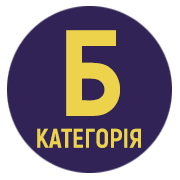TO THE ESSENCE OF THE PHENOMENON: INDIVIDUAL STYLE OF THE HEAD OF A CHILDREN'S CREATIVE TEAM
Abstract
The article deals with the psychological and pedagogical dimension of choosing an individual leadership style for a children's creative team.The purpose of the article is to identify, in the context of theoretical studies on management activity, the factors essential for forming an individual leadership style for a children's creative team. The individual leadership style is compared with the concept of leadership style in the context of administrative (managerial) activity. It is shown that the pivotal factors that determine the effectiveness of an individual leadership style are the nature of motivation of team members and the prevailing psychological atmosphere that contributes/not contributes to its successful activity. The article considers different leadership styles in the projection on a children's creative team as an integral social organism. The guideline for choosing the optimal leadership style is the subjectivity of each team member on the basis of partnership, which concerns the joint creative success and the possibility of individual creative expression. Indicators of the optimal individual style of leadership of a children's collective for creative success (personal flexibility and mobility in choosing communication methods, focus on supporting individual creative manifestations of the use of the potential of each subject, creating positive guidelines for the creative process) and requirements for the personal traits of the leader and his/her professional training (values and priorities in relation to pupils and art; ability to lead in combination with interpersonal communication skills) are allocated.
References
Rogers C.R., Stevens R. (1967). Learning to be free. Person to person: The problem of bein human. Walnut Creek, CA, Р. 59–65.
Anderson C. (1982). The Search for School Climate: A Review of the Research. Review of Educational Research. Vol. 52. № 3. Р. 368–420.
Паньків Л.І. (2005). Теорія та методика підготовки майбутнього вчителя до керівництва учнівськими музичними колективами. Дис…канд..пед.н. 13.00.02-Теорія та методика навчання музики і музичного виховання/НПУ імені М.П.Драгоманова, 153 с.
Балл Г.О. (2003). Сучасний гуманізм і освіта: Соціально-філософські та психолого-педагогічні аспекти. Рівне : «Ліста-М», 128 с.
Потапчук Т.В. (2023). Особливості професійної діяльності майбутнього диригента оркестрового колективу. Інноватика у вихованні. Вип. 17. С. 103–111.
Скібіцька Л. І. (2009). Лідерство та стиль роботи менеджера: Навчальний посібник. К. : Центр навчальної літератури, 192 с.
Коханова О. П. (2013). Партнерство як фактор соціалізації особистості. Педагогічний процес: теорія і практика. Вип. 2. С. 196–204. URL: http://nbuv.gov.ua/UJRN/pptp_2013_2_24
Хуан Ханьцзе (2018). Методика підготовки майбутнього вчителя музики до сценічного партнерства у процесі ансамблевого виконавства. Молодь і ринок. № 4. С. 135–139.





